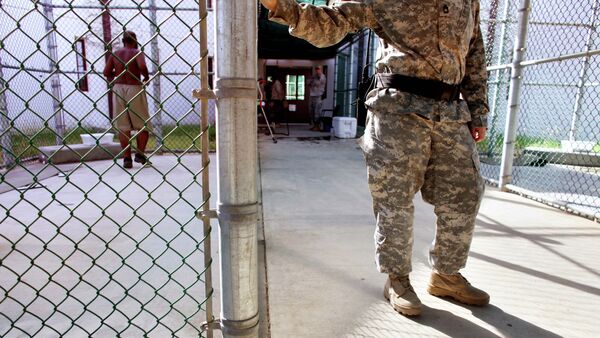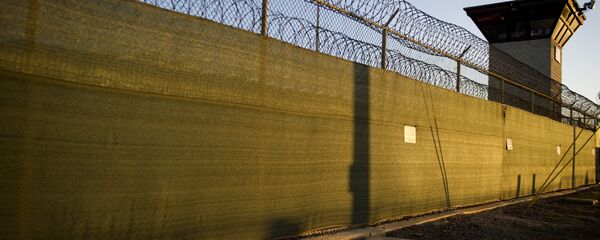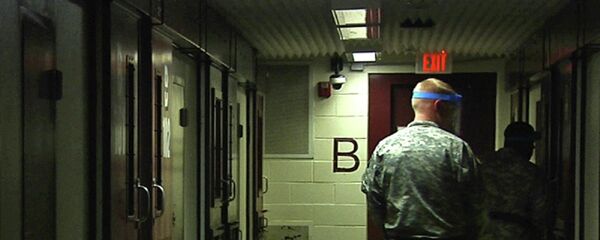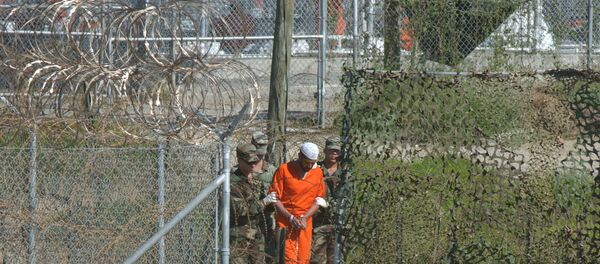In a closed session on Friday, a judge ruled some of the information declassified, and lawyers described what they read on Sunday. Cheryl Bormann, one of the defense attorneys, said that it did not appear that the "torture chamber" in question had been razed, but rather a former secret overseas CIA "black site" had been "decommissioned" by US agents.
Suzanne Lachelier, another attorney, said agents were allowed to remove "fixtures," which she described as sounding like "contraptions or devices." Defense attorney Jay Connell said that instead of getting permission from the prison to "exercise our own professional judgment as to what to document about the black sites," prosecutors received a judge’s permission to offer diagrams and top secret photos of the CIA’s overseas network of secret prisons, as an alternative.
From 2002 to 2006, inmates in these black sites were kept in diapers or naked; abused, waterboarded, subjected to extremes of hot and cold temperatures, and forced into cramped boxes by CIA agents. The Senate Torture Report concluded that these tactics were almost entirely ineffective. Two of these black sites were located at Guantanamo.
Walter Ruiz, lawyer for 47-year-old Saudi Mustafa al Hawsawi, said his client "continues to bleed daily” from rectal abuse he received. "Some would call that sodomy, those acts caused longstanding chronic and medical conditions that have yet to be resolved."
The lawyers were not able to learn the exact location of the decommissioned site, with prosecutors claiming they were concealing this information for the sake of protecting foreign relations.
Khalid Sheik Mohammed and four other former CIA captives are in the US for a military tribunal, with charges leveled against them that they provided logistical support, and directed or trained the hijackers who conducted the September 11, 2001, terrorist attacks that killed nearly 3,000 people. David Nevin, Mohammed’s attorney, argued that since all five men were at the site at one time or another, the site was equally relevant to each case.
Army Brig. Gen. Mark Martins, the chief prosecutor, would not to address whether the site in question still exists. He did, however, use language present in the Military Commissions Act and Classified Information Protection Act, "so that our court processes don’t squander national security and secrets."
"We’re not going to let an individual criminal defendant… mortgage the whole future of the country in one case, because they’ve got something that could force government officials to try to figure out how to accommodate it…We’re not allowed to compromise national security just to get to a result in a case. That’s what Congress is trying to prevent," he said.





